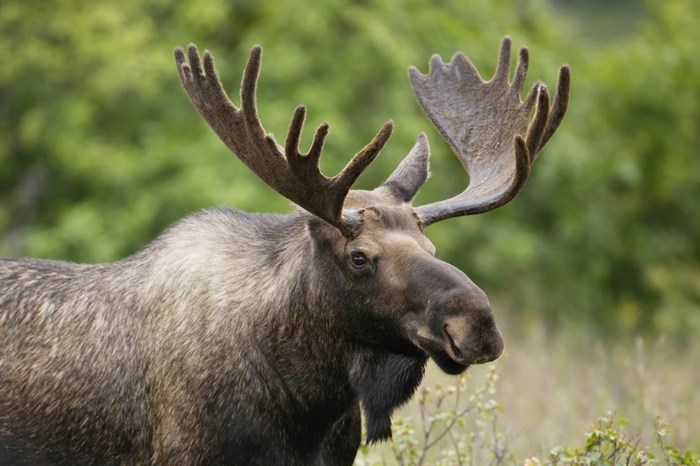
Image Credit: Shutterstock
July 04, 2021 - 8:15 AM
While some animals are adapted to temperature spikes in the B.C. Interior, there’s concern around how one species, which already has declining populations in the province, will fare.
Moose, commonly found throughout northern B.C., the Cariboo-Chilcotin, the Thompson-Okanagan and Kootenay regions, prefer cooler temperatures, said UBC Okanagan wildlife biologist Adam Ford. Dozens of heat records have been set across the province this week during an unprecedented heat wave.
In the last 10 to 15 years, moose populations across B.C. have declined between 50 to 70%. A biologist with the B.C. Ministry of Forests, Lands, Natural Resource Operations explained during a presentation in April that declining populations overlap with habitat changes due to intense forest development associated with pine beetle timber salvage.
READ MORE: Wolves, habitat changes decimating Interior B.C. moose populations
Animals that are better adapted to the cold, like moose, in a landscape with less forest may not be able to find what researchers call “thermal refuge,” meaning they won’t be able to find shade or shelter to keep them out of the heat, Ford said.
“Where do they go on the landscape when it’s been cut and eroded… there’s fewer and fewer places to go," he said.
“If climate change was the only thing happening and we had this heat and we didn’t see widespread landscape change at the same time, I think it would be much easier for the animals to cope, but the combination of the two, we’re probably going to see some effects.”
The coping mechanism for all mammals, like humans, is to shelter from the heat, in the shade and near water.
“This heat is just going to make things more vulnerable to the stressors that are already out there,” Ford said.
At lot of animals also had their young right now. Young animals have less coping strategies to deal with the heat, much like humans.
“Still these nights are hot and they’re not going to be able to cool down as much as normal," Ford said. “So hopefully there’s enough cool forest so they can wait it out and stay cool until the heat breaks in the day."
To contact a reporter for this story, email Carli Berry or call 250-864-7494 or email the editor. You can also submit photos, videos or news tips to the newsroom and be entered to win a monthly prize draw.
We welcome your comments and opinions on our stories but play nice. We won't censor or delete comments unless they contain off-topic statements or links, unnecessary vulgarity, false facts, spam or obviously fake profiles. If you have any concerns about what you see in comments, email the editor in the link above.
News from © iNFOnews, 2021